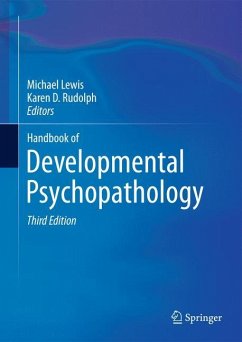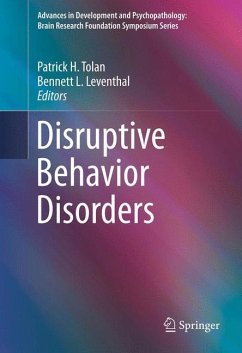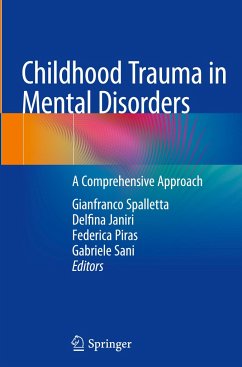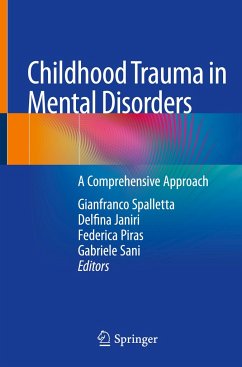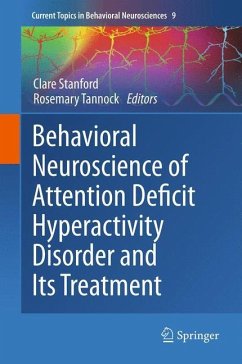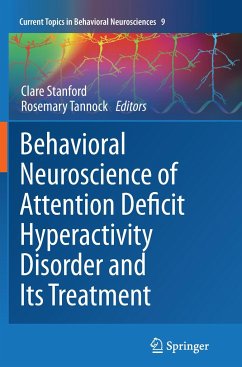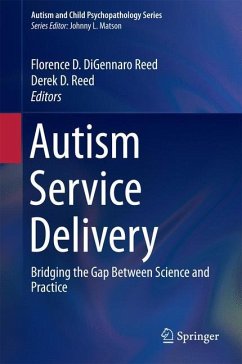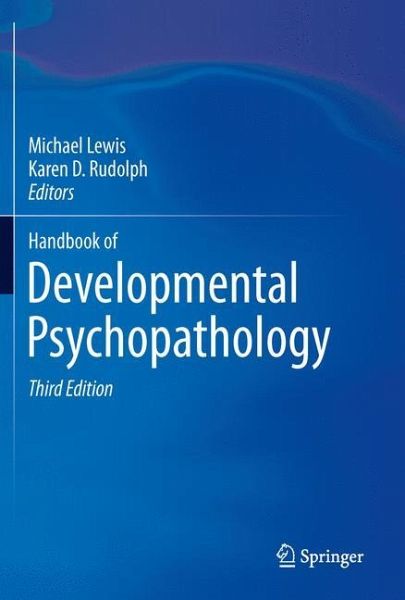
Handbook of Developmental Psychopathology
Versandkostenfrei!
Versandfertig in 6-10 Tagen
250,99 €
inkl. MwSt.

PAYBACK Punkte
125 °P sammeln!
When developmental psychologists set forth the theory that the roots of adult psychopathology could be traced to childhood experience and behavior, the idea quickly took hold. Subsequently, as significant research in this area advanced during the past decade, more sophisticated theory, more accurate research methodologies, and improved replication of empirical findings have been the result.The Third Edition of the Handbook of Developmental Psychopathology incorporates these research advances throughout its comprehensive, up-to-date examination of this diverse and maturing field. Integrative st...
When developmental psychologists set forth the theory that the roots of adult psychopathology could be traced to childhood experience and behavior, the idea quickly took hold. Subsequently, as significant research in this area advanced during the past decade, more sophisticated theory, more accurate research methodologies, and improved replication of empirical findings have been the result.
The Third Edition of the Handbook of Developmental Psychopathology incorporates these research advances throughout its comprehensive, up-to-date examination of this diverse and maturing field. Integrative state-of-the-art models document the complex interplay of risk and protective factors and other variables contributing to normal and pathological development. New and updated chapters describe current refinements in assessment methods and offer the latest research findings from neuroscience. In addition, the Third Edition provides readers with a detailed review across the spectrum of salient topics, from the effects of early deprivation to the impact of puberty.
As the field continues to shift from traditional symptom-based concepts of pathology to a contemporary, dynamic paradigm, the Third Edition addresses such key topics as:
Early Childhood disorders, including failure to thrive and attachment disorders.
Aggression, ADHD, and other disruptive conditions.
Developmental models of depression, anxiety, self-injury/suicide, and OCD.
The autism spectrum and other chronic developmental disorders.
Child maltreatment and trauma disorders.
The Third Edition of the Handbook of Developmental Psychopathology is a discipline-defining, forward-looking resource for researchers, clinicians, scientist-practitioners, and graduate students in such fields as developmental psychology, psychiatry, social work, child and school psychology, educational psychology, and pediatrics.<
The Third Edition of the Handbook of Developmental Psychopathology incorporates these research advances throughout its comprehensive, up-to-date examination of this diverse and maturing field. Integrative state-of-the-art models document the complex interplay of risk and protective factors and other variables contributing to normal and pathological development. New and updated chapters describe current refinements in assessment methods and offer the latest research findings from neuroscience. In addition, the Third Edition provides readers with a detailed review across the spectrum of salient topics, from the effects of early deprivation to the impact of puberty.
As the field continues to shift from traditional symptom-based concepts of pathology to a contemporary, dynamic paradigm, the Third Edition addresses such key topics as:
Early Childhood disorders, including failure to thrive and attachment disorders.
Aggression, ADHD, and other disruptive conditions.
Developmental models of depression, anxiety, self-injury/suicide, and OCD.
The autism spectrum and other chronic developmental disorders.
Child maltreatment and trauma disorders.
The Third Edition of the Handbook of Developmental Psychopathology is a discipline-defining, forward-looking resource for researchers, clinicians, scientist-practitioners, and graduate students in such fields as developmental psychology, psychiatry, social work, child and school psychology, educational psychology, and pediatrics.<



